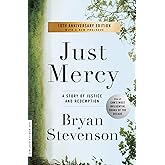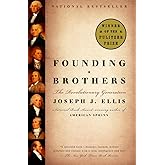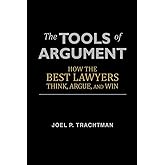
Enjoy fast, free delivery, exclusive deals, and award-winning movies & TV shows with Prime
Try Prime
and start saving today with fast, free delivery
Amazon Prime includes:
Fast, FREE Delivery is available to Prime members. To join, select "Try Amazon Prime and start saving today with Fast, FREE Delivery" below the Add to Cart button.
Amazon Prime members enjoy:- Cardmembers earn 5% Back at Amazon.com with a Prime Credit Card.
- Unlimited Free Two-Day Delivery
- Streaming of thousands of movies and TV shows with limited ads on Prime Video.
- A Kindle book to borrow for free each month - with no due dates
- Listen to over 2 million songs and hundreds of playlists
- Unlimited photo storage with anywhere access
Important: Your credit card will NOT be charged when you start your free trial or if you cancel during the trial period. If you're happy with Amazon Prime, do nothing. At the end of the free trial, your membership will automatically upgrade to a monthly membership.
Buy new:
-22% $14.00$14.00
Ships from: Amazon.com Sold by: Amazon.com
Save with Used - Good
$7.45$7.45
Ships from: Amazon Sold by: GreatBookDealz

Download the free Kindle app and start reading Kindle books instantly on your smartphone, tablet, or computer - no Kindle device required.
Read instantly on your browser with Kindle for Web.
Using your mobile phone camera - scan the code below and download the Kindle app.



 Audible sample
Audible sample Gideon's Trumpet: How One Man, a Poor Prisoner, Took His Case to the Supreme Court-and Changed theLaw of the United States Paperback – April 23, 1989
Purchase options and add-ons
A history of the landmark case of Clarence Earl Gideon's fight for the right to legal counsel. Notes, table of cases, index. The classic backlist bestseller. More than 800,000 sold since its first pub date of 1964.
- Print length288 pages
- LanguageEnglish
- PublisherVintage
- Publication dateApril 23, 1989
- Dimensions5.2 x 0.74 x 7.9 inches
- ISBN-100679723129
- ISBN-13978-0679723127
- Lexile measure1200L
Book recommendations, author interviews, editors' picks, and more. Read it now.
Frequently bought together

Customers who viewed this item also viewed
Editorial Reviews
From the Inside Flap
From the Back Cover
About the Author
Product details
- Publisher : Vintage (April 23, 1989)
- Language : English
- Paperback : 288 pages
- ISBN-10 : 0679723129
- ISBN-13 : 978-0679723127
- Lexile measure : 1200L
- Item Weight : 11.2 ounces
- Dimensions : 5.2 x 0.74 x 7.9 inches
- Best Sellers Rank: #69,923 in Books (See Top 100 in Books)
- #8 in Legal History (Books)
- #71 in Civil Rights & Liberties (Books)
- #1,440 in United States History (Books)
- Customer Reviews:
About the author

Discover more of the author’s books, see similar authors, read book recommendations and more.
Customer reviews
Customer Reviews, including Product Star Ratings help customers to learn more about the product and decide whether it is the right product for them.
To calculate the overall star rating and percentage breakdown by star, we don’t use a simple average. Instead, our system considers things like how recent a review is and if the reviewer bought the item on Amazon. It also analyzed reviews to verify trustworthiness.
Learn more how customers reviews work on AmazonCustomers say
Customers find the book to be essential reading for law students, with one noting it's an extremely readable account. The story receives positive feedback, with one customer describing it as emotionally charged.
AI-generated from the text of customer reviews
Select to learn more
Customers find the book readable and informative, with many noting it's essential reading for law students.
"...Supreme Court chooses and decides cases, is the subject of this very readable book by Anthony Lewis...." Read more
"What an interesting book! I got this book for my husband who loves to read. He really enjoys reading it! And shipping package was wonderfully packed." Read more
"This book was great, especially for somebody who's training to become a legal professional, but really for all U.S. Citizens who want to understand..." Read more
"...The prose is brisk and clear, as to be expected from a journalist of that era. This is worth reading." Read more
Customers enjoy the story quality of the book, with one customer noting its emotionally charged narrative.
"...Few stories have as emotionally charged, as well as legally compelling, truths...." Read more
"Beyond the legal aspects of the case, it’s a great story. Anthony Lewis was the best commentator on the SCOTUS decisions. Too bad he passed away." Read more
"Had to read this for a class, I am glad we did. This is a great story that I think many people should read...." Read more
"...The book is difficult to get through. The beginning is very interesting, but then it gets very dry. I never finished it." Read more
Top reviews from the United States
There was a problem filtering reviews. Please reload the page.
- Reviewed in the United States on April 1, 2017Clarence Earl Gideon was arrested for a petty crime, and because he couldn’t afford one, asked for an attorney to represent him in court. His request was denied. He was convicted and sentenced to five years in the Florida State Prison. Using a pencil and prison letterhead, he appealed to the Supreme Court for a writ of certiorari. Arguing that the lower court had deprived him of his Sixth Amendment right to have an attorney for his defense and that he had been denied due process under the Fourteenth Amendment, Gideon told the Court that as a layman he was incapable of defending himself.
Gideon’s chance of finding a needle in a haystack was infinitely greater than having his case heard by the Supreme Court. But it was. Gideon v. Wainwright (1963) changed the whole course of American legal history. Gideon’s incredible story, and the story of how the Supreme Court chooses and decides cases, is the subject of this very readable book by Anthony Lewis. Lewis knows the ins and outs of the American judicial system. He was a New York Times reporter who covered the Supreme Court from 1957 to 1964. He also taught law at Harvard from 1974 to 1989.
The Supreme Court receives some 2500 appeals each term (or did so at the time of Gideon’s appeal) of which 150 are actually granted a hearing. “Review by the Supreme Court is in the interest of the law, its appropriate exposition and enforcement, not in the mere interest of the litigants,” the author quotes Chief Justice Charles Evans Hughes. In other words, the Court accepted Gideon’s appeal not out of the goodness of its heart but to address a legal issue. The issue that interested the Court was whether or not criminal defendants tried in state court who were unable to afford an attorney, and not provided one by the state, were being denied their Constitutional rights. In federal court, defendants without means were provided legal counsel by court. Under federal law, it was their Constitutional right. But under state law? That was a different issue all together. The states were not bound by Bill of Rights guarantees. “Our Constitution created a system of dual governments, state and federal, each with its own laws,” writes the author. Tried in a state court, Gideon was not guaranteed the right to an attorney. Fortunately for him, issues of federal law sometimes arise in state courts, and therefore can be appealed, and this was one.
Twenty years earlier, in a similar case (Betts v. Brady, 1942), the Court ruled in favor of the state—an indigent criminal defendant did not have the right to an attorney. By 1962, when Gideon filed his appeal, the makeup of the court had changed significantly (more liberal/more activist) and decided to reexamine the merit’s of the Court’s prior decision. Having accepted Gideon’s appeal, the Court asked one of the top attorneys in the nation (future Supreme Court justice Abe Fortas) to represent Gideon. Working pro bono, Fortas put the expertise of his powerful Washington law firm to work on the case, with no stone left unturned.
The state of Florida, meanwhile, assigned a 26-year-old assistant attorney general named Bruce Robert Jacob to represent the state. He argued that defendants without means were perfectly capable of acting as their own attorney. Indeed, Gideon had done quite well for himself in court, in a losing case. Jacob also made an appeal to all 49 states to file friend-of-court briefs on behalf of Florida. There was one very big problem, however: 23 states favored a new standard of fairness on state criminal procedure. Only two states—Alabama and North Carolina—spoke up for Florida.
The Court’s ruling was unanimous. As with state capital offenses, defendants who could not afford an attorney now must be provided one by the state. Gideon’s conviction was overturned. He was assigned an attorney and his case was retried in a Florida court. This time, he won, and was released from prison.
Gideon v. Wainwright was one of three Supreme Court decisions to significantly alter criminal procedure so that it better protected the rights of the accused. The other two are Miranda v. Arizona (1966) and Mapp v. Ohio (1961). Conservative critics have accused the court in such cases as legislating rather adjudicating the law. Perhaps. But how much longer would it have taken Congress to pass such legislation, if ever?
Justice Walter Schaefer of Illinois has advanced “the relation of the United States to the rest of the world” today as one argument for national standards of criminal procedure. “The quality of a nation’s civilization can be largely measured by the method it uses in the enforcement of its criminal law.” Adds the author, “The Supreme Court is in a strategic position to give voice to national ideals.” Brilliant book.
- Reviewed in the United States on December 20, 2023What an interesting book! I got this book for my husband who loves to read. He really enjoys reading it! And shipping package was wonderfully packed.
- Reviewed in the United States on June 1, 2013This book was great, especially for somebody who's training to become a legal professional, but really for all U.S. Citizens who want to understand how our justice system works in the highest court in the land.
Unfortunately, many jurisdictions still don't comply with the Supreme Court Mandate that indigent defendants charged with a crime cannot receive a fair trial without a criminal defense attorney! This is costing us a bundle, because it's expensive to keep people in jail & we're broke. Not to mention that, in the cases where innocent people are convicted without a fair trial, we still have the criminals free among us & they are going to commit more crimes because they've learned they can get away with it!
I would recommend this book for anybody who is concerned about civil rights and our justice system. And if you read this one you'll also want to read "Chasing Gideon," which talks about current problems with indigent defense in various jurisdictions. This will give you a clearer picture of what's happening now. This book, "Chasing Gideon," is also available through Amazon.
- Reviewed in the United States on December 19, 2014For some reason Lewis' book reminded me, more than anything else, of the classic works of the old DC novelist Allen Drury, who wrote about life in Washington in this era. Most specifically, it does so in the way in which it is filled with confidence in the public men of that city and the institutions of American government itself.
The prose is brisk and clear, as to be expected from a journalist of that era. This is worth reading.
- Reviewed in the United States on June 27, 2021My daughter was keen on legal battles recently and asked me to get this book. The delivery to Singapore took a bit of time. But she is glad she has the book. It is an absolute eye opener and a must read for legal students.
- Reviewed in the United States on December 27, 2014One of the best books I've ever read! This is about my fifth copy as I have given all of my previous copies away to my students. It is an insider's glimpse about the process of how the Supreme Court hears a case. More importantly it is set in the 1960's when tremendous civil right changes were taking place in America. Anthony Lewis writes to his audience . . . cutting through legal terminology so we can fully understand what this landmark case stands for.
- Reviewed in the United States on July 4, 2022A book that you'll rediscover. It's a classic
- Reviewed in the United States on May 24, 2020This was an inspiring look into the roll of the Supreme Court. It’s fascinating to see the intersection of a single man’s life and an entire national institution which results in an educated and humble review of how our nation should be governed.
Top reviews from other countries
-
 星の子Reviewed in Japan on July 7, 2002
星の子Reviewed in Japan on July 7, 20025.0 out of 5 stars 2
三十数年前の著書に巡り合えるとは!
私にとって、掛け替えのない一冊です。
名もない一人の刑事被告人だった"Gideon"が、アメリカ合衆国
の歴史にその名を刻むまでのノンフィクション。まさに、「事実は
小説より奇なり」と言うべきか。
おぼつかない語学力ですが、辞書を頼りに、粘り強くまた根気強く、
再度"Gideon"との二人?旅に出ようと思う。
 Josh LLReviewed in the United Kingdom on March 27, 2017
Josh LLReviewed in the United Kingdom on March 27, 20174.0 out of 5 stars Highly Informative
This book cleverly uses the narrative of this specific case to showcase and analyse the processes, structures and controversies of the SCOTUS.
 Chuck HowittReviewed in Canada on July 11, 2021
Chuck HowittReviewed in Canada on July 11, 20211.0 out of 5 stars Dated and dull
This book was originally published as a feature in the New Yorker so I thought it would be a good read. It was not. Very dated and dives too deeply into the arcane details of law. I did not finish it.














